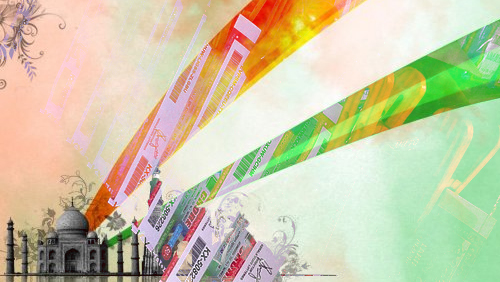Finding the elusive fortune in India’s lottery may now come with a heavy price tag starting July 1.
 The Indian government is now mulling putting lottery tickets in the 28 percent goods and services tax (GST) bracket, the highest tax category in the country.
The Indian government is now mulling putting lottery tickets in the 28 percent goods and services tax (GST) bracket, the highest tax category in the country.
Citing anonymous sources, The Economic Times of India reported that the proposed tax on the US$7.78 billion lottery business will be up from minimal or zero tax levied by about a dozen states that have lotteries.
Those state governments include Sikkim, Punjab, Goa, Maharashtra and Kerala. The Modi administration is looking to tax the ‘face value’ of the lottery, something Playwin President Rahul Tangri finds unfair.
The ‘face value’ of a lottery pot comprises three parts – the prize money, government taxes and operators’ margin.
“GST should only be levied on the operators’ margin. The prize money part comes under direct tax (income tax paid by the winner),” Tangri said.
Kamlesh Vijay, CEO of Sugal & Damani, one of India‘s largest lottery and gaming operators, echoed Tangri’s sentiments, saying that “any irrational tax structure would kill the industry.”
“Lottery is a well-regulated industry. It provides direct employment to over 10 lakh people. Higher tax slabs would force lottery companies out of business. It will also spawn a large number of underground, illegal lottery schemes,” he said.
Dhruwa Advisors CEO Dinesh Kanabar warned that the plan to apply 28 percent GST to the lottery might backfire against the government, specifically its revenue, since the new policy might force some operators to shutter their shops.
The government, according to Kanabar, also exposes itself to more legal suits in the future.
“Like in the case of lotteries, they are neither a service nor goods and it would be difficult to categorise them and then put them under a tax bracket,” Kanbar said.
Surprisingly, some of the states that depend on lottery revenues are supporting higher taxes under GST.
“Lotteries which are managed by external parties do not conform to any rules laid down in the Central Lotteries Act. These are mostly what you call the lottery mafia,” Kerala finance minister Thomas Isaac, said, according to the report. “A higher tax regime would drive these people out of business. I am prepared to lose some revenue because of higher GST slab on lotteries. It will eliminate a big law-and-order problem around lotteries in our country.”